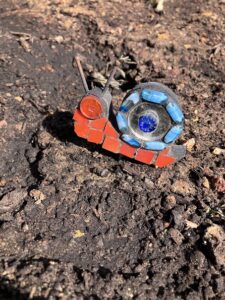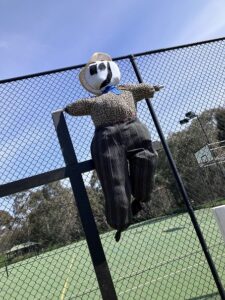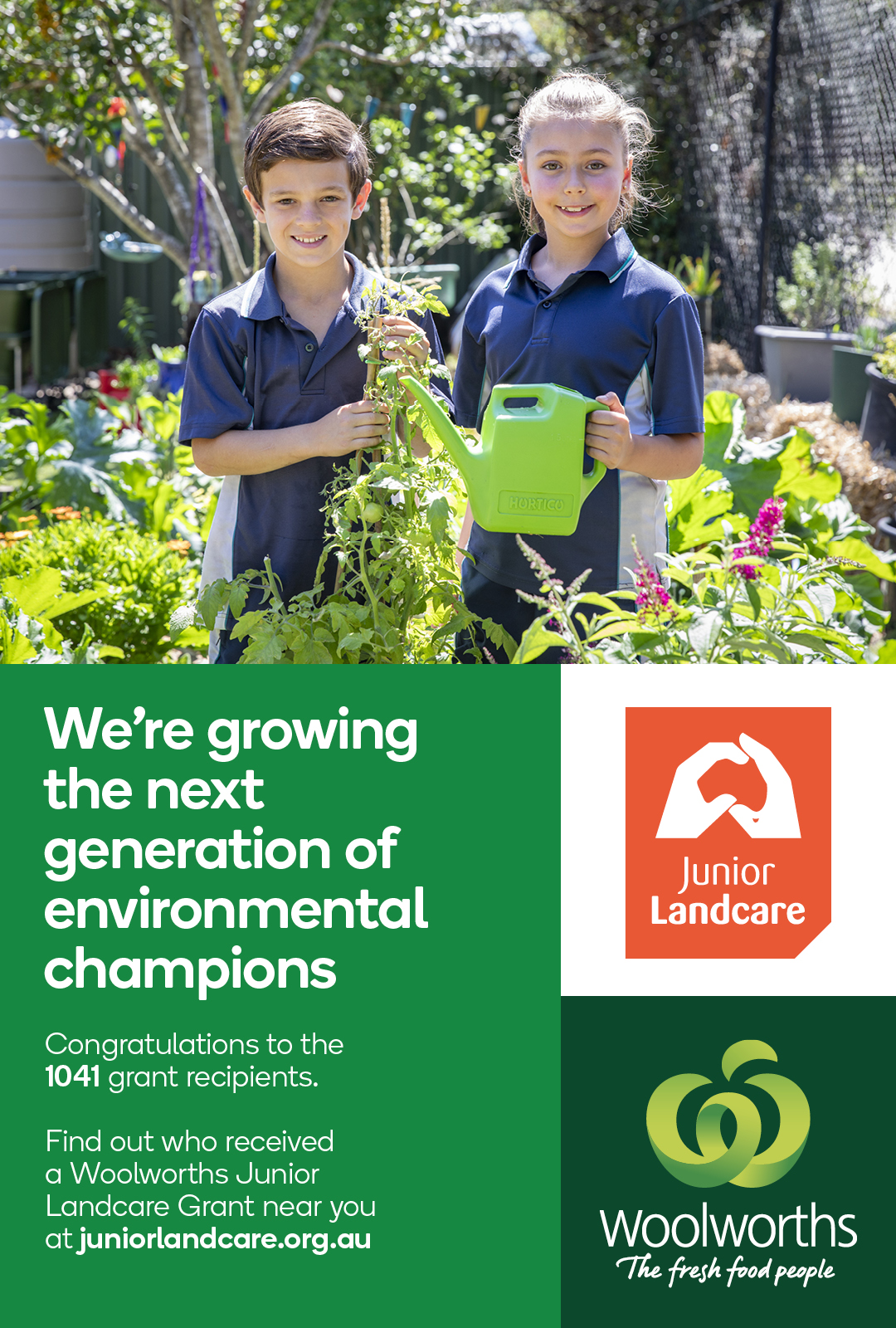News

Nestled in a picturesque valley on the far-east edge of the Macedon Ranges in Victoria, Darraweit Guim Primary School (DGPS) has a long and enduring association with Landcare.
From setting up nets on Deep Creek adjoining the school for platypus surveys done by Australian Platypus Conservancy over 20 years ago to planting indigenous vegetation at Darraweit Guim Recreation Reserve, with the help of parents on the Upper Maribyrnong Catchment (Landcare) Group’s (UMCG’s) committee (including John Robinson, who has been involved in this Landcare group as a volunteer since 1993), the school has always loved getting students outdoors – and taking every opportunity it can get to “complete our learning outside”.
This year, in collaboration with Upper Deep Creek Landcare Network and their Junior Landcare Facilitator, Emma Stevens, the school has been able to undertake a number of Junior Landcare activities, most of which have been tailored to fit in with the flood recovery work around the school post the devastating floods in October 2022 that annihilated the school property (classrooms and gardens). All previous Junior Landcare and Landcare plantings and projects had been washed away!
Initially this support included emails, phone calls and visits from Emma. Other support provided included the removal of flood debris and repairing school boundary fencing.
Next, using their 2023 Junior Landcare Woolworths Grant, they set about rehabilitating school grounds through the school’s ‘Make the Garden Great Again’ project, which has seen the rebuilding of the veggie garden and purchase of fruit trees, to help establish the sustainable practice goals of the school.
“These gardens have inspired the development of a sensory garden with smells, textures, bright colours and a beautiful curving path decorated with mosaic tiles,” says Julie Schier, DGPS’s Disability, Inclusion and Well-being teacher.
In addition to the beautiful mosaic tiles students created with the help of an education support staff member and mosaic artist who runs lunchtime clubs with the students, they also set about constructing scarecrows to bring the veggie garden to life.
Says Julie: “These were constructed during art classes by the students with mostly recycled materials.”
Most recently, the school participated in Junior Landcare’s ‘Love Letters to the Land’ campaign, which “has formed an important part of trauma recovery after the flood event of 2022” adds Julie.
Currently the Junior Landcare Facilitator is also looking for a safe way to replace and re-hang the nesting boxes in mature trees on the school grounds. This will form a part of the Biodiversity learning module.
The school has also become a member of the Upper Maribyrnong Catchment (Landcare) Group so they can access indigenous plants through TreeProject and have begun landcare-related programs such as the Melbourne Water River Detectives program. They have also continued their Stephanie Alexander Kitchen Garden program and Diggers Club membership to contribute to the growth of the veggie garden area.
“Outdoors is so important for the students,” shares Julie. “At DGPS we have many outdoor spaces for the students to play as well as use for learning. We have a yarning circle which is often used as a learning space, and more often as a wellbeing space. We run an ‘EMPOWER’ girls group and a boys group which is regularly held in this space. Currently around this space we are developing a sensory garden including plants with scent, visual, textural, aural and taste attributes, as well as a sensory path and water feature.
The school also recently built a small outdoor stage area, which was the idea and design of the student leaders. “This space has become a favourite play space for the students as well an area for assembly each week. We have the large pavilion out the back too which is a fantastic undercover large learning space.”
Each week we visit the creek nearby and conduct water quality and invertebrate testing. This is part of the River Detectives program.
“Reconnecting with our beautiful learning space after the floods has been an essential part of the healing for all members of the school community,” concludes Julie.
To create a Sensory Garden of your own, explore the ‘Creating a Sensory Garden’ in the Junior Landcare Learning Centre here.
To locate a Landcare Group in your area or near your school, search the National Landcare Directory here.


 Teachers & Educators
Teachers & Educators Youth or Community Groups
Youth or Community Groups
0 Comments